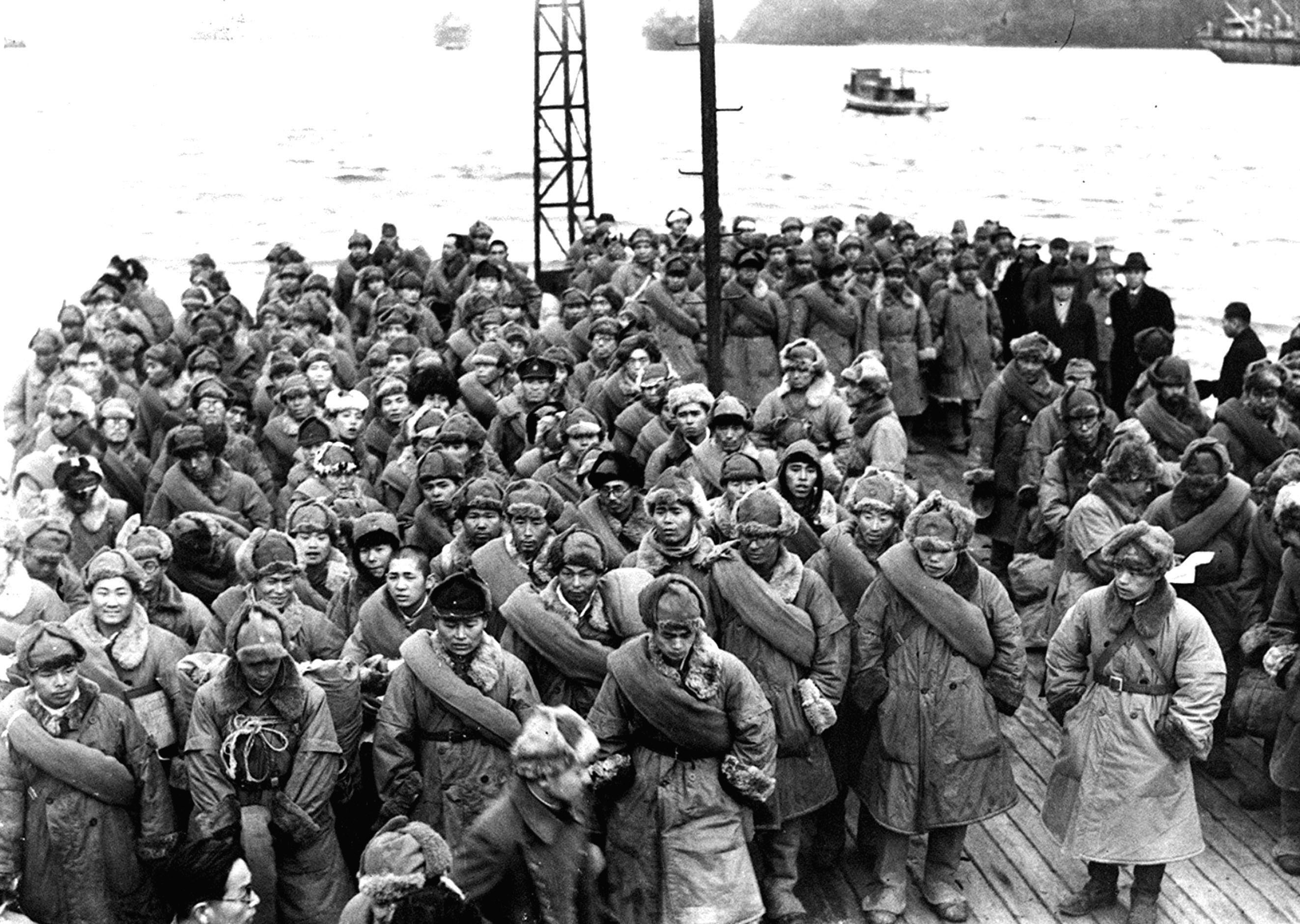
Japanese prisoners of war in the Soviet Union
After World War II there were from 560,000 to 760,000 Japanese personnel in the Soviet Union and Mongolia interned to work in labor camps as POWs.[1] Of them, it is estimated that between 60,000[2][3][4][5] and 347,000 died in captivity.
The majority of the approximately 3.5 million Japanese armed forces outside Japan were disarmed by the United States and Kuomintang China and repatriated in 1946. Western Allies had taken 35,000 Japanese prisoners between December 1941 and 15 August 1945, i.e., before the Japanese capitulation.[6] The Soviet Union held the Japanese POWs in a much longer time period and used them as a labor force.
Soviet Union behavior was contrary to the Soviet–Japanese Neutrality Pact from the beginning, and also to the Potsdam Declaration, which guaranteed the return of surrendered Japanese soldiers to Japan.
When Russian President Boris Yeltsin arrived in Japan in October 1993, he apologized for being an "inhumane act."[7]
However, the Russian side said, "The transferred Japanese soldiers are" prisoners of war "who were legally detained during the battle and do not fall into the category of" detainees "who were unfairly detained after the end of the war."[8]
Research in Russia[edit]
Research into the history of the Japanese POWs has become possible in Russia only since the second half of the 1980s, with glasnost and the dissolution of the Soviet Union. Until this time the only public information about any World War II POWs taken by the Soviet Union was some numbers of prisoners taken. After opening the secret Soviet archives the true scope of the POW labor in the Soviet Union has become known,[4] and the topic has been discussed in the press.
Japanese POWs have become the subject of the historians of Siberia and the Russian Far East, who gained access to local archives of NKVD/MVD and CPSU[19] A number of kandidat (PhD) dissertations had been presented about Soviet POW in various regions. In 2000 a fundamental collection of documents related to POWs in the USSR was published, which contained significant information about Japanese.[4]
In the 2000s, several books about Japanese POWs were published in Russia.[20][21][22]
About 2,000 memoirs of Japanese POWs in the Soviet Union have been published in Japan.[14]
At least one memoir of a Japanese POW in the Soviet Union has been published in English.[23]
Legacy[edit]
In 2015, records of the internment and repatriation were registered as a UNESCO Memory of the World under the title "Return to Maizuru Port—Documents Related to the Internment and Repatriation Experiences of Japanese (1945-1956)".
In fiction[edit]
The Japanese novelist Toyoko Yamasaki wrote the 1976 novel Fumō Chitai, about an Imperial Army staff officer captured in Manchuria, his captivity and return to Japan to become a businessman. This has been made into a film and two television dramas.
A dramatisation of experiences as a Soviet POW form a portion of the latter part of the epic movie trilogy, The Human Condition, by Masaki Kobayashi.
Kiuchi Nobuo reported his experiences about Soviet camps in his The Notes of Japanese soldier in USSR online comic series.
The 2011 South Korean movie My Way also shows the treatment of Japanese and Japanese-recruited Koreans in Soviet POW camps.